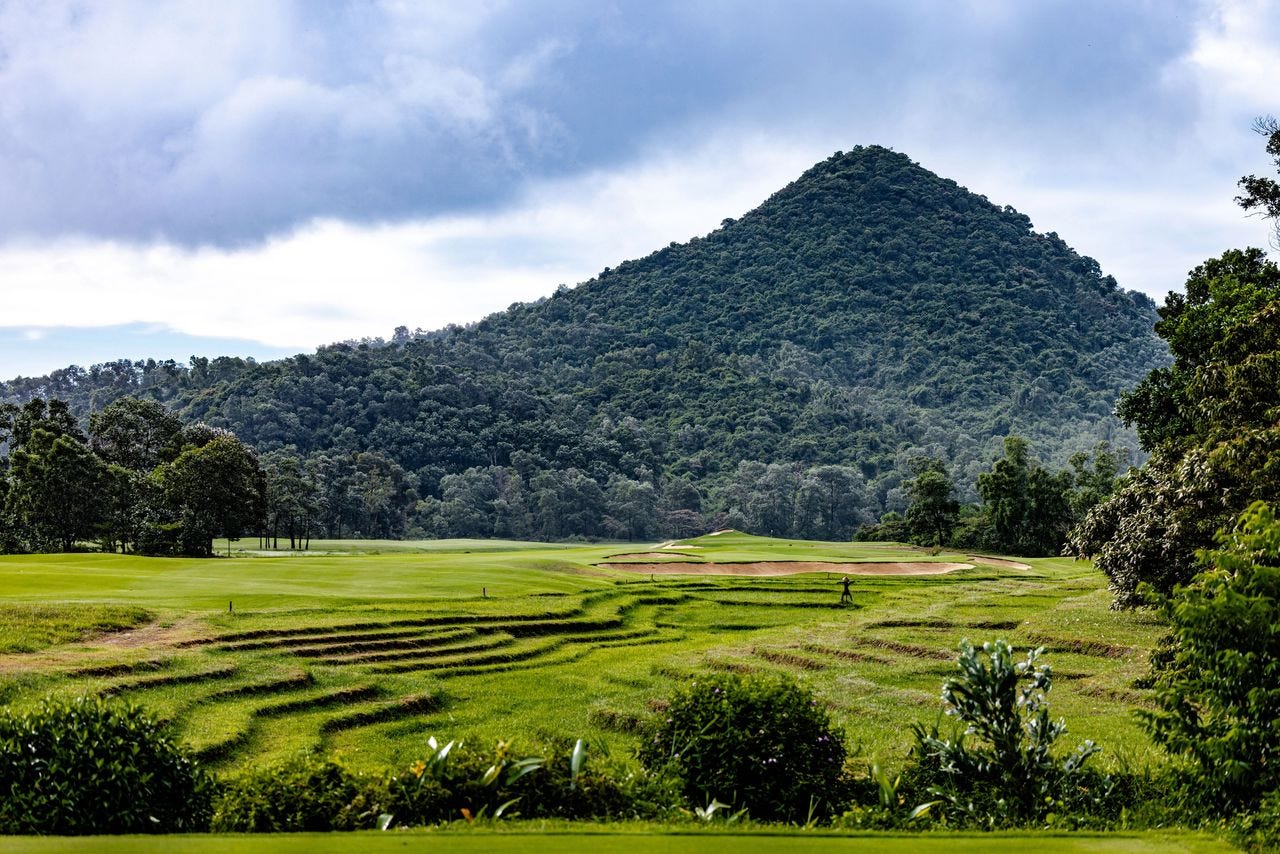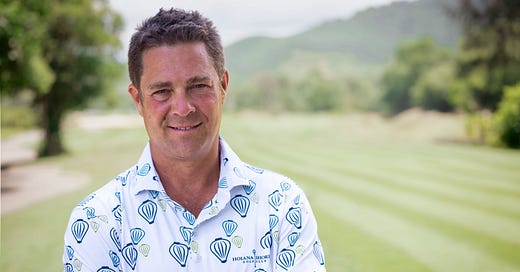Six Questions For... Scott Resch of Asia Golf Trips
Continuing our series of interviews with leaders, executives, entrepreneurs and influencers from across the golf industry. Today, Scott Resch of specialist golf travel firm, Asia Golf Trips.
About Scott Resch
Scott Resch comes from Seattle, USA. Between 2007 and 2018, Scott lived and/or worked in South-East Asia as the head of the golf division for Balcony Media Group, a media relations firm specializing in generating publicity for luxury hotels, resorts and golf courses. During that time, Scott not only set up dozens of trips to Asia for international journalists, he helped launch some of the biggest golf initiatives ever conceived for Vietnam and Thailand. A former golf writer and course rater, Scott has played golf all over the world — from Scotland to Bandon Dunes to Pebble Beach — yet dreams mostly about his golf experiences in Asia. Out of his passion for golf and travel, he founded Asia Golf Trips in 2023. Now living in Park City, Utah, he returns to Asia multiple times a year. On course, he carries a 2-handicap — but also a lot of mental baggage on the greens!
Six Questions For... Scott Resch of Asia Golf Trips
Shane Breslin: First question. What has been the biggest unexpected breakthrough in your business so far?
Scott Resch: Random encounters!
I thought I’d pick up all my business — at least in the first couple of years — through the golf circles I run in and through PR/media/marketing efforts, which is the world I was in for more than 20 years.
But many clients have come by way of me just being in the right place at the right time, and being willing or comfortable enough to strike up a conversation with a stranger in a bar or on a golf course.
What it says to me is that there is no replacement for real, one-on-one exchanges. Prospects ask question after question in those situations, until all of them are answered. And they get to see and feel my passion for what I do, and what kind of personality I have. So face-to-face is a serious needle mover.
“Your clients are your most effective salespeople. If you do a good job, they are going to tell their friends. If you’ve got 100 people singing your praises versus just 10, you’re going to be fielding a lot more inquiries.”
SB: What did you think would be easy but has turned out hard?
SR: Sales is getting a lot easier now, two years in. I have a strong understanding of what my target markets are now, and word is starting to get out about my trips.
But the first year was a real struggle. I thought the idea and the offering would take hold faster, mainly because I’m around golfers so much and live in a community full of private clubs.
Also, my model is focused on quality over quantity; I don’t need a lot of clients to make this a viable and sustainable lifestyle business. But I was a bit naive to what everyone says, which is that it takes 3-5 years to develop.
There’s a lot that goes into building a business — there are more pieces to the puzzle than I ever imagined — and building trust. But everything is now moving in the direction I thought it would. It’s just taken a couple of years to get here.
I’ve also learned how important it is to be patient. Your clients are your most effective salespeople. If you do a good job, they are going to tell their friends, fellow golf club members, etc. But the only way you can build that “sales force”, if you will, is to build a satisfied client base. If you’ve got 100 people singing your praises versus just 10, you’re going to be fielding a lot more inquiries. But getting to the point where you have that critical mass of ambassadors takes time.
“Vietnam has become a great golf destination, but with all that coastline and how receptive the government is to golf projects now, there’s a good chance that it evolves into one of the best in the world. Maybe even top five.”
SB: What was your first job in golf and how does it influence your current perspective on the industry?
SR: I was the golf editor of Luxury Golf & Travel magazine. It taught me there is a lot of money out there in golf. I didn’t come from that world, but now I know that there are people who have an unfathomable amount of money, who love to play golf and who love to travel, and what’s most valuable to them is their time.
That set doesn’t care what an experience costs, they just want it to be awesome. That has informed my business strategy immensely. Based on that, I knew from the start I could create my own market and not worry about the competition. That’s a nice place to be.
SB: What are you working on now that you're excited to see in 12 months’ time?
SR: I’m working on a new offering — golf trips to Portugal — and can’t wait to see where that goes after I run my first trip in October 2025.
I think that’s going to push my business into another realm for at least three reasons.
It’s going to give me a couple more opportunities per year to generate revenue.
It’s going to bolster the likelihood of repeat business among those who like the “Asia Golf Trips experience” as much as anything I offer.
It’s going to entice those who like to travel for golf but are more conservative minded. Asia is intimidating to a lot of Westerners; it’s out of their comfort zone. But talk to that person about Europe and wine and all of a sudden you’ve got a potential client.
“I only had three clients on my first trip — and I wasn’t sure where the next three would come from. Fast forward 12 months and all four trips for 2025 are sold out (at 7-8 golfers per trip) — and 2026 is on the verge of selling out too.”
SB: What emerging golf market are you most excited about and why?
SR: It would still have to be Vietnam. Even though I’ve witnessed first-hand an off-the-charts amount of growth there over the past 20 years, there’s still so much potential.
It’s become a great golf destination. But with all that coastline, with the caliber of courses and resorts that exist there now, with all there is to do from a cultural and culinary standpoint, and with how strongly the government has latched on to the benefits of golf and golf projects, there’s a good chance that Vietnam evolves into one of the best golf destinations in the world. Maybe even top five.

SB: How do you measure success differently now compared to when you started?
SR: Great question. At the start, it was all about, “Let’s get at least 3 people on board for a trip and see what happens.”
Now I’ve got annual revenue goals, I know exactly how much each head costs, I know what people are willing to pay for a once-in-a-lifetime type of experience, and so measuring success now is all about momentum and trajectory.
A year ago, I had just completed my first trip. I only had three clients on that trip — and I wasn’t sure when the next three would come, or where they would come from.
Fast forward 12 months and all four trips for 2025 are sold out (at 7-8 golfers per trip) — and 2026 is on the verge of selling out too.
Oh, and the trips are selling at a MUCH higher price point than that inaugural trip. If all of that doesn’t spell success, I don’t know what does!




